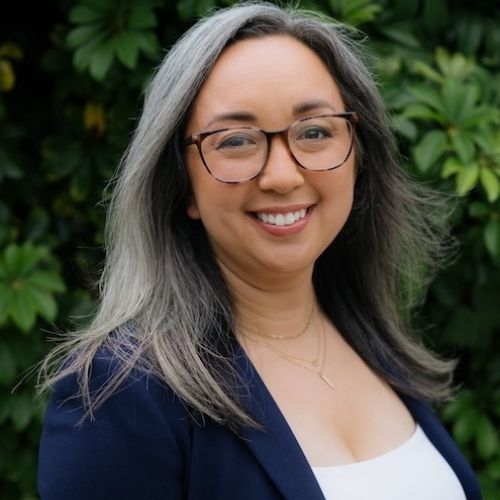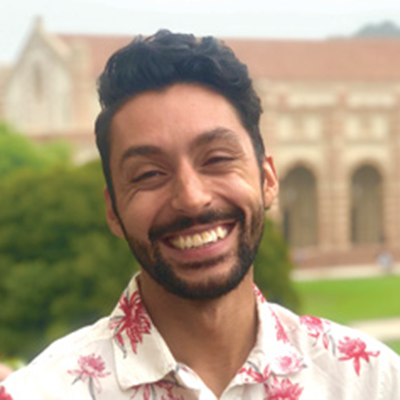
2019
Prescriptive Paths
Three Fielding School students and three recent graduates share what compelled them to address health care through a public health lens, why they chose their area of focus, and what they hope to achieve.
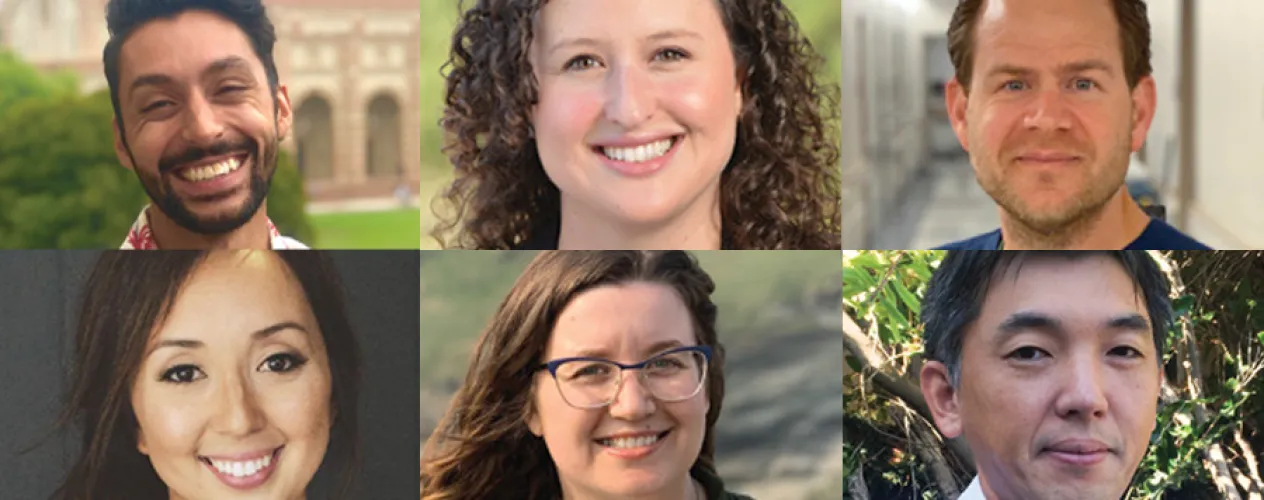
Sebastian Ramirez, MPH Student

I ENTERED PUBLIC HEALTH AFTER RECOGNIZING the commonalities in my experiences with helping others. I earned my undergraduate degree in medical imaging, then worked as an X-ray technologist at large health care systems in Philadelphia. At the same time, I volunteered for community organizations that served Philadelphia’s LGBTQ+ population. Seeing and learning about the inequities experienced by this population — and living some of them as a gay man of color myself — it became easy for me to see the same inequities within health care. That led me to seek ways to improve the cultural competency of health care professionals and promote inclusion in health care practices, toward the goal of better serving not only LGBTQ+ people, but any marginalized or underrepresented group.
To achieve this, I taught health care professionals about intercultural communication, intersectionality, and systems of oppression. Attempting to do this while still an X-ray technologist, my reach was limited. Additionally, helping one patient at a time, while important, wasn’t enough for me. I felt that I needed to do more, and I found public health to lie at the intersection of my career and service experience. Public health can teach me effective ways to pursue social justice within a broken U.S. system that can harm those who need the most help. With that knowledge, I can create systemic changes to help entire communities. Following my Fielding School education, I hope to earn a position in strategic planning and operations at a health care institution, where I can work to create these changes.
Michelle Keller, MPH ’14, PhD ’19, Research Scientist
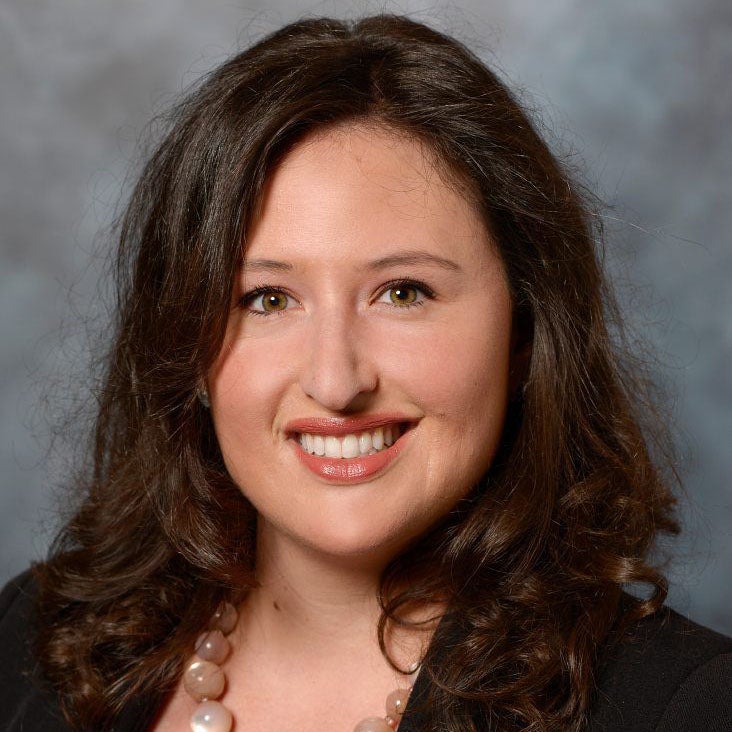
WHEN I WAS IN ELEMENTARY SCHOOL, my mother had an episode of debilitating back pain, which eventually morphed into chronic pain. As she shuttled from doctor to doctor with few answers, she was prescribed a medley of medications — some with potential for dependence and many of which weren’t helpful, despite their significant risks and side effects. My family’s experience in navigating the medical system for chronic pain highlighted the challenges that many patients and their families face. These experiences shaped my desire to study how clinicians make decisions about prescribing medications for pain as a doctoral student in FSPH’s Department of Health Policy and Management. For my dissertation, I interviewed clinicians at one health system to understand how they made decisions about patients’ risk for opioid addiction or misuse, and about adding new patients to their practice who have been taking opioids for a long time. I also analyzed more than 20,000 patient records to see whether clinicians were prescribing opioids appropriately. Today, I work as an embedded research scientist at Cedars-Sinai Medical Center, where I apply findings from my research to inform patient care. My current research focuses on helping to identify patients who might be taking medications (such as opioids and benzodiazepines) that place them at high risk for addiction, dependence, or overdose, and who could benefit from patient-centered medication management programs. I’m also working closely with pharmacists and physicians to develop communication tools that improve discussions about medications between patients and clinicians. My goal is to reduce the use of inappropriate or unnecessary medications, tests, and procedures in health systems while maintaining empathetic, high-quality care for patients with chronic pain.
Erik Coll, MPH Student
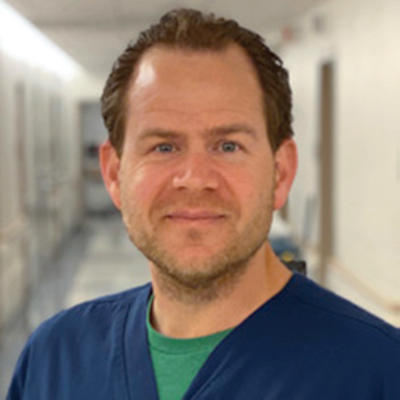
TWENTY YEARS AGO, I made a decision that shaped the person I am today: I chose to become a nurse. From that point forward, my goal was to further my education in the field of emergency medicine so that I could positively influence my family, community, and the health care system. Since those early days — working as an emergency medical technician running 911 calls, then going on to nursing school — I have lived my dream and accomplished many of my personal and professional goals. One that I cherish the most is working at UCLA as an assistant nurse manager in the emergency department.
I applied to the Fielding School’s Executive Master of Public Health (EMPH) program so that I could obtain the key to unlock my future. I am an expert in the field of nursing and am learning the everyday joys and toils of front-line management. I seek to move beyond this and combine my experience and future education to become a transformational leader in the field of health care.
I had done research on many programs and paths that could get me from point A to B, and there is little question in my mind that the EMPH program is the correct fit. I value the classroom format, along with the small, diverse cohorts where connections and relationships are fostered. The faculty and curriculum are directly in line with my goals. Finally, I enjoy working in the hospital and attending school on campus, which has allowed me to bring theory to work and work to theory while doing what I love: helping others.
Isomi Miake-Lye, PhD ’16, Researcher and FSPH Faculty Member
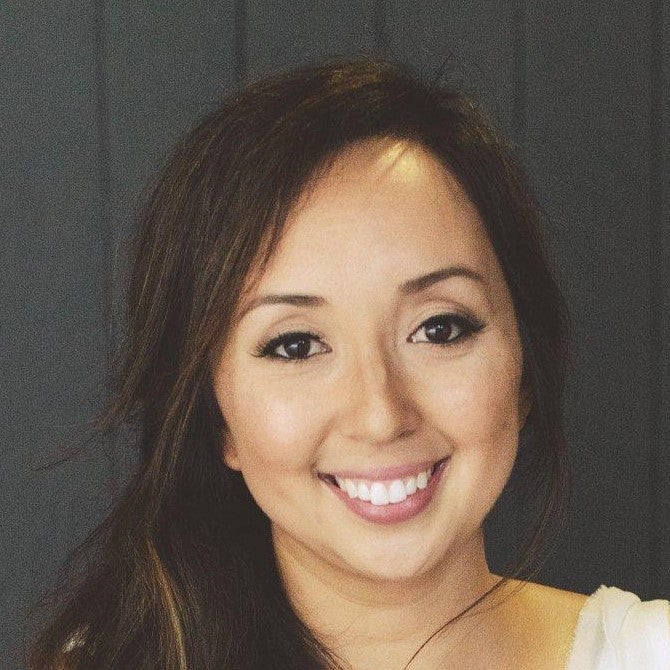
WHEN ANY ONE OF US STEPS OUT OF EVERYDAY LIFE and into the role of patient, we need support. For people who are sicker, being a patient means juggling a myriad of medications, appointments, and treatment plans and drawing upon a full slate of social workers, doctors, nurses, clerks, and professionals within the health care system. Failure to coordinate health care costs the United States tens of billions of dollars a year and has serious health implications — especially for complex patients like our veterans. Veterans have more physical and mental health comorbidities than the general population, and the veterans my work targets are some of the most high-risk, with complex needs.
As a researcher at the Center for the Study of Healthcare Innovation, Implementation and Policy at the VA Greater Los Angeles Healthcare System, I take my organizational behavior theory and implementation science expertise and partner with clinicians and systems stakeholders to help troubleshoot where the system breaks down and implement solutions. The training I received while obtaining my PhD from FSPH’s Department of Health Policy and Management now feeds directly into the work I do — measuring organizational readiness for change initiatives, developing tailored implementation approaches, and investigating strategies for working with those places that are hard to engage. I am able to work directly in a real-world health care setting and be a part of an evolving health care system, learning how a massive and complex system can be responsive and provide the help veterans need.
Petra Rasmussen, PhD Candidate
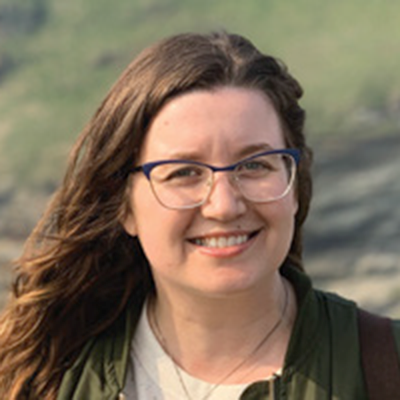
EVERY DAY, THROUGHOUT THE DAY, people have to make decisions. Most are simple and have minimal long-term consequences, such as deciding what to wear, which route to take to work, or what TV show to watch at the end of a long day. But others are complicated, with potentially serious implications for an individual’s well-being. These complex decisions are the type that people most often face when interacting with the health care sector.
In my dissertation research, I look at the choices individuals make when enrolling in health insurance. While traditional economic theory suggests that having more options to choose from is better, social science research has found that people often struggle to make the best decisions for themselves, particularly when they are stressed, underinformed, and comparing across several dimensions. Selecting a health care plan meets all of these criteria. People don’t like having to think about the possibility of getting sick or needing to see a doctor, they often have low health insurance literacy, and they have to figure out how to weigh plans’ premiums, co-payments, deductibles, provider networks, quality ratings, and covered benefits.
By studying the health insurance choices that individuals make and their decisionmaking processes, I can evaluate how well people are able to navigate the enrollment process. Ultimately, the goal of my work is to gain insights into the types of challenges individuals face during enrollment so that we can better design improvements to the process that will benefit patients and consumers.
Hiroshi Gotanda, PhD ’19, Physician
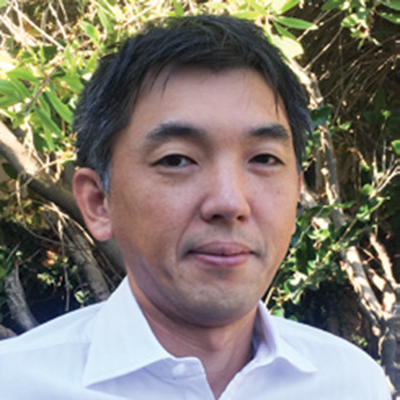
DURING MY CLINICAL TRAINING, I was astonished by how significantly health care providers’ practices are affected by state and federal health policies — in good and bad ways. After the introduction of financial penalties based on the rate of hospital-acquired conditions such as infections and bedsores, we were strongly encouraged to be vigilant about prevention and documentation, and rightly so. However, I have seen cases in which diabetes is aggressively treated in patients who could be harmed by the treatment given their conditions, partly because of quality metrics to promote diabetes control.
These experiences inspired me to pursue my PhD in health policy and management at FSPH so that I could learn about health systems and methodologies for evaluating the effects of health policies. While my interest as a clinician started from a desire to improve the quality of medical care for patients, studying at the Fielding School gave me a larger perspective that raised new questions: What about people who don’t see medical doctors regularly? What about those who are uninsured? For my dissertation, I examined the national impact of the Affordable Care Act’s Medicaid expansion on financial and health outcomes among low-income populations, many of whom are uninsured and have limited access to health care.
My ongoing goal is to produce clinically relevant and scientifically rigorous evidence on health policies and programs that are intended to improve the quality of care and expand the outreach of health services, so that policymakers and organizational leaders can make sound decisions. I am thrilled with my career path as a clinician and health services researcher who can make a unique contribution to society.
